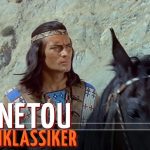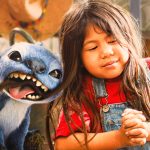Moana (2016)
- nguyentruong
- December 2, 2024

Moana (2016), directed by Ron Clements and John Musker, is a visually stunning and emotionally resonant animated film from Walt Disney Animation Studios. Set in ancient Polynesia, the movie follows the adventurous journey of a young girl named Moana Waialiki, voiced by Auli’i Cravalho, as she sets out on a quest to save her people and restore the heart of Te Fiti, a mystical artifact that has been stolen by the demigod Maui. With its vibrant animation, memorable music, and strong, independent protagonist, Moana stands as a modern Disney classic, blending adventure, humor, and a profound coming-of-age story.
The story of Moana begins with the island of Motunui, a lush, beautiful land where Moana lives with her family. She is the daughter of the village chief, Sina (Nicole Scherzinger), and is expected to take on the leadership role of her people one day. However, Moana is drawn to the ocean, feeling a deep connection to it despite her father’s disapproval. Her adventurous spirit is a source of conflict, as her father, Chief Tui (Temuera Morrison), forbids her from venturing beyond the reef. The island, he insists, is all Moana needs to care for and protect. However, when a crisis strikes—the island’s fish stocks begin to dwindle and crops fail—Moana realizes that the ocean holds the key to saving her people.
Determined to fulfill her destiny, Moana embarks on a daring voyage across the ocean to find Maui, a shape-shifting demigod (voiced by Dwayne “The Rock” Johnson), who is believed to be responsible for stealing the heart of Te Fiti. Along the way, she encounters perilous seas, mythical creatures, and a great deal of self-doubt. The film explores Moana’s internal conflict between the responsibilities placed upon her and her desire to forge her own path. She faces many challenges, not only from the external dangers of the sea but also from her own fears and uncertainties about her worth as a leader.
 Moana’s relationship with Maui is one of the film’s most dynamic elements. Initially, Maui is portrayed as an arrogant, self-absorbed figure, reluctant to help Moana. He believes he is a hero for stealing the heart of Te Fiti, only to have his actions backfire, leading to the ocean’s curse on humanity. However, as the journey progresses, both characters evolve. Moana teaches Maui the true meaning of heroism, while Maui helps Moana understand the power within herself. Their relationship is a blend of comedy and heartfelt moments, with Maui’s bravado and Moana’s determination creating an engaging dynamic.
Moana’s relationship with Maui is one of the film’s most dynamic elements. Initially, Maui is portrayed as an arrogant, self-absorbed figure, reluctant to help Moana. He believes he is a hero for stealing the heart of Te Fiti, only to have his actions backfire, leading to the ocean’s curse on humanity. However, as the journey progresses, both characters evolve. Moana teaches Maui the true meaning of heroism, while Maui helps Moana understand the power within herself. Their relationship is a blend of comedy and heartfelt moments, with Maui’s bravado and Moana’s determination creating an engaging dynamic.
The film also addresses themes of identity, self-discovery, and courage. Moana’s journey is one of personal growth, learning that being a leader doesn’t mean following in the footsteps of others but carving out her own path. She learns that being true to herself and embracing her heritage are what make her truly powerful. The overarching message of the film is one of empowerment, as Moana learns to trust her instincts, believe in her abilities, and step into her role as the leader she is destined to become.
Musically, Moana shines with a memorable soundtrack composed by Lin-Manuel Miranda, Opetaia Foa’i, and Mark Mancina. Songs like “How Far I’ll Go,” “You’re Welcome,” and “We Know the Way” are not only catchy but also deeply connected to the themes of the film. “How Far I’ll Go” is Moana’s anthem of self-doubt and yearning for adventure, while “You’re Welcome,” sung by Maui, is a humorous and self-congratulatory number that reveals his complex character. The songs are not only integral to the storytelling but also elevate the emotional depth of the narrative, resonating with audiences of all ages.
 The animation in Moana is breathtaking, with vibrant colors, lush landscapes, and a stunning portrayal of the Pacific Ocean. The ocean itself is almost a character in its own right, its mood shifting with the plot and acting as both a guide and a source of danger. The depiction of the Polynesian islands is both culturally rich and respectful, drawing from real-world traditions and history while adding a layer of fantasy and mythological elements.
The animation in Moana is breathtaking, with vibrant colors, lush landscapes, and a stunning portrayal of the Pacific Ocean. The ocean itself is almost a character in its own right, its mood shifting with the plot and acting as both a guide and a source of danger. The depiction of the Polynesian islands is both culturally rich and respectful, drawing from real-world traditions and history while adding a layer of fantasy and mythological elements.
The voice cast is exceptional, with Auli’i Cravalho bringing warmth, determination, and vulnerability to the role of Moana. Dwayne Johnson, as Maui, delivers a charismatic performance, blending humor with depth as he evolves from a selfish trickster to a mentor and friend. The supporting characters, including Moana’s grandmother Tala (Rachel House), a spiritual guide who inspires Moana to embrace her calling, and her loyal pet rooster Heihei, add humor and emotional support to the story.
At its core, Moana is a tale of adventure and discovery, not only of the world around you but also of who you are and what you are capable of. It is a film that celebrates bravery, independence, and the power of believing in yourself. Moana’s journey, both literal and emotional, resonates deeply with audiences, making her one of Disney’s most empowering heroines.
In conclusion, Moana is an exceptional film that stands out for its captivating animation, vibrant music, and strong central themes. It is a story about self-discovery, resilience, and the importance of following one’s own path, no matter how challenging it may be. The film’s cultural significance, relatable protagonist, and timeless messages ensure that it will remain a beloved classic for years to come.











